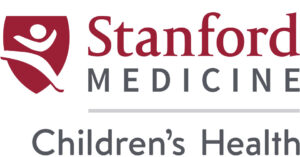Hello, my name is Zariah Stevenson. I am a junior at Menlo Atherton High School and a patient at Lucile Packard Children’s Hospital Stanford.
The hospital is a very special place. And I should know. I’ve been a patient there for 15 years. I was diagnosed with sickle cell beta thalassemia at birth. My red blood cells, they turn into a crescent shape because they don’t get enough oxygen.
It causes me pain in my back, arms, and legs, especially when I do a lot of physical activity. I end up being admitted to the hospital late at night.
Sickle cell has impacted my life in many ways. For example, when I am hospitalized, my grades suffer, and when I return to school, my energy level is low. In the past, I haven’t felt included in school because I felt different with my condition.
I feel that Packard Children’s is a very good hospital because they care for me beyond my physical health and they show interest in personal things that I like. This past year I was admitted to the hospital for two weeks. The pain was more severe than ever, which meant I needed more medicine and I wouldn’t be able to do school work. I felt really nervous about school. But the doctors and nurses asked me to introduce myself in my favorite language, Korean. This showed me that they cared for me.
I’m glad to be at Packard Children’s and I think it’s a good hospital because they can definitely connect with you. And they just make me feel loved overall and not forgotten about. They have explained my condition to me through regular appointments. When I was hospitalized, they helped me cope with my condition through a Child Life Specialist.
When I returned to school, my grades were not so great, and I was very worried. Ms. Jeanne Kane from the Hospital Educational Advocacy Liaisons (HEAL) program came and talked with me about school. With my mom, she advocated at my school for my Individualized Education
Plan to ensure I could get the help I needed, and as a result, I was able to get a case manager who helped me manage my class load.
I am now more confident, getting better grades, and I’ve joined my favorite sport, cheerleading.
I would like to thank Dr. Michael Jeng, nurse practitioner Judith Lea, and social worker Kerri Lowe for helping keep my health on track and supporting my family.
Thank you to anyone who has helped me, whether it was taking my blood, volunteering and bringing activities to my room, the pastoral staff who prayed for me, and the receptionist who greeted and knows me.
I also want to thank donors and those who support the hospital for giving me the opportunity to share my story. By sharing my story, I have learned that I am more than my condition. It helped bring awareness to sickle cell at my school, my church, and my community.
I am not shy to talk about my condition and I am thinking of becoming a nurse. Because when a nurse treated me like her own daughter, I felt more supported. Now I want to help others just like me.
This article originally appeared in the Spring 2018 issue of the Children's Fund Update.


